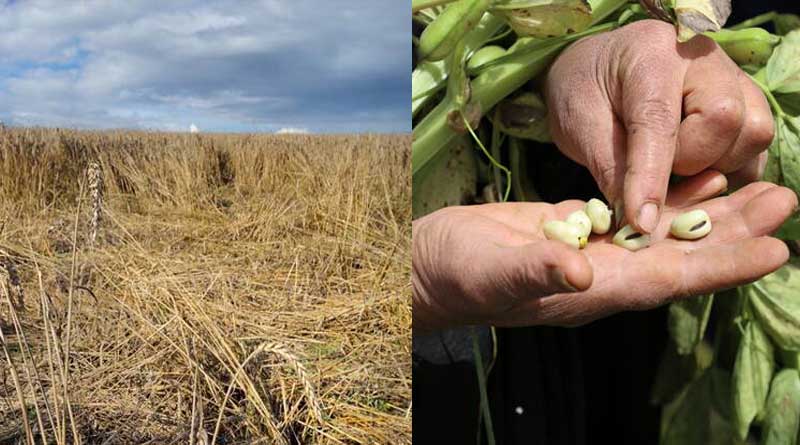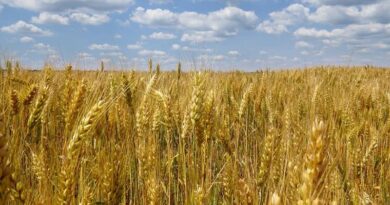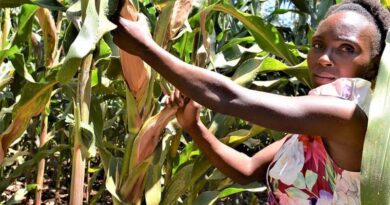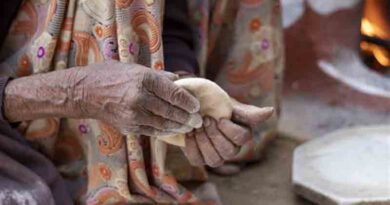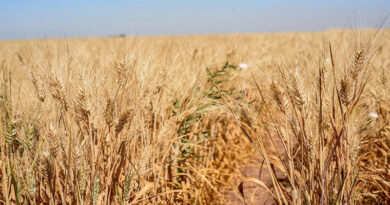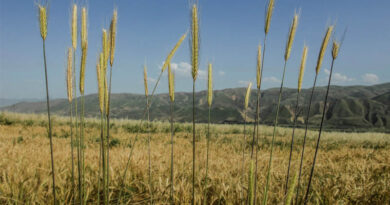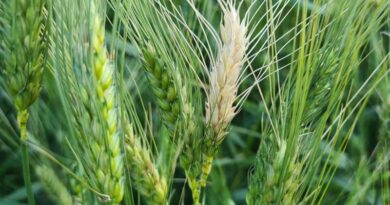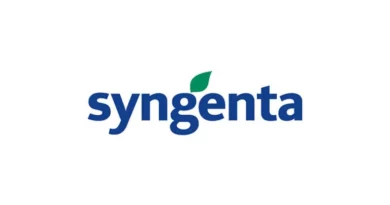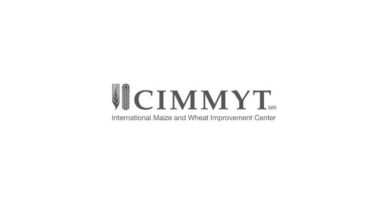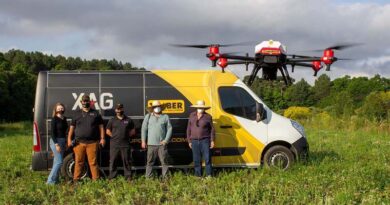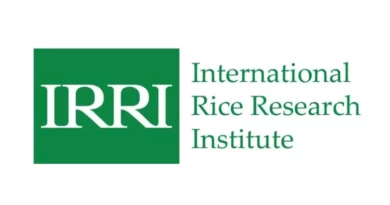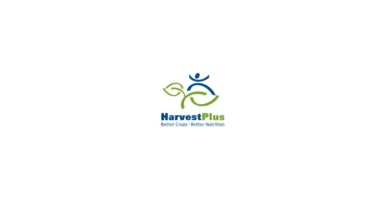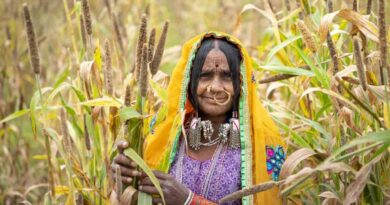A finger on the pulse
10 February 2024, Africa: Wheat’s global struggles – On World Pulses Day, I would like to start, perhaps provocatively, by discussing a cereal crop. Wheat – the preeminent global staple under threat – is grappling with unprecedented threats, particularly in our Central and West Asia and North Africa (CWANA) region. Here climate change exponentially amplifies stressors like drought, heat, and soil salination. While the future of maize, potato, or rice remains similarly uncertain, the acute susceptibility of wheat to these climate-induced pressures has led to substantial disruptions to production, and international trade, exacerbated by political conflicts. Alongside drought in Africa, the Ukraine crisis has surely been a clear wake-up call, driving significant price rises for dozens of wheat-dependent countries that are often the poorest.
Sustained and increased investment is urgently needed in research and development around wheat. Indeed, without such interventions, wheat may not offer a viable and sustainable long-term path to global food security. If diseases such as the wheat rust fungus and pests like the east African locust continue to proliferate amid ever warmer climes, we could even end up with catastrophic famines following a wheat pandemic, the apocalypse of crop breeders like me. However, our research horizons must remain broad. An exclusive focus on wheat could only impede overall agricultural resilience.
The silent superheroes
As I reflect on the dynamic world of agriculture, I can’t help but marvel at the silent superheroes – pulses. Faba bean, lentil, grasspea, forage legumes, and chickpea, ICARDA’s target crops, could rapidly reshape the landscape of sustainable farming. Their intricate relationship with nitrogen-fixing bacteria serves to enrich the soil with essential nutrients. Further, the fixed nitrogen used by pulses is in turn released when the plant breaks down (becoming available to other crops if in rotation on the land, such as wheat).
Our breeding science has evolved pulses, including ICARDA’s flagship varieties, to maximize growth with minimal water and fertilizer inputs – essential in an age of droughts and shortages. The deep root systems of pulses access water from soil layers unavailable to shallower-rooted plants, allowing them to withstand periods of water scarcity.
In South Asia, our climate-smart pulses varieties, such as fast maturing lentil varieties, used alongside relay cropping techniques, are significantly boosting farmers’ incomes by allowing a bonus crop in the short fallow period between staple rice harvests, addressing the nutritional needs of local communities and soil alike. The new varieties offer a yield increase of 35–40%.
Significantly, our research is based on our stakeholders’ needs and knowledge. Through our comprehensive gene banks and high-precision breeding techniques, we deliver climate-smart crops as a tangible outcome of continuous research endeavors that start right at the beginning, involving the farmers themselves.
Lentil is a personal favorite of mine, not just because it makes delicious soup (beloved across Egypt) but because, like pulses in general, it is rightly categorized as a ‘resilient crop’ able to adapt seamlessly to challenging conditions. Lentils, a ‘clean’ source of protein that dates back to ancient Egypt, embody sustainability and nutritional abundance, contributing to both crop and livestock production.
Pulses on the global stage
The historical journey of pulses, originating here, in the Fertile Crescent, and thriving globally, is awe-inspiring. Take Australia, which only started growing chickpea as a commercial crop some 50 years ago. It now produces about one-third of global chickpea exports: a testament to the adaptability of pulses in diverse agricultural landscapes and to a country finding new ways to navigate the climate impacts that are ravaging its agricultural landscape.
By contrast, other countries continue down the path of import dependency. Supplementing wheat, some countries in this region are significant consumers of pulses, importing roughly half of their needs. Yet achieving self-sufficiency would require a tiny area of land for cultivation. In time, such a shift would relieve pressure on other crop imports, as well as rehabilitate land damaged by extensive wheat cultivation, presenting a natural and compelling case for reevaluating crop priorities. But how can we convince cash-strapped farmers to take that step into the unknown?
Bringing pulses into the mainstream remains a challenge – cultural and commercial drivers are hard to dismantle. Today, shops, transport, trade, and indeed whole agricultural economies are built around rice, maize, and wheat, the three crops that provide the staples for 80 percent of the world’s population. Wheat also seems to exert a stranglehold on cultural drivers. From the bustling streets of Paris to the rural villages of India, the significance of wheat bread in different cultures is woven into the fabric of daily life, reflecting not only culinary traditions but also social, religious, and historical contexts.
Pulses, along with other ‘neglected crops’ are not yet sufficiently prioritized by the policymakers. An overhaul of those commercial and cultural norms would mean a radical transformation of the whole farm-to-fork food system. Fortunately, to that end, we already have powerful tools at our disposal. Our science has the ability to build stable, self-reinforcing gene pyramids – offering horizontal resistance to multiple pathogens. Our increasing use of advanced AI models, using decades of past data (ICARDA has been headquartered in this region for over 40 years), enables us to predict future temperature impacts on crops.
Armed with game-changing, research-backed innovations, our work on neglected crops is part of our unwavering commitment to more resilient, nutritious, and environmentally friendly agricultural systems. But if the demand for these crops is to increase, funders, consumers, and producers must be fully aware of their benefits. We can deliver sustainable food production and biodiversity conservation when we address these challenges together. Given the right investment, ICARDA stands ready to solve the challenges.
Also Read: World Pulses Day 2024: Will India become self-sufficient in Pulses?
(For Latest Agriculture News & Updates, follow Krishak Jagat on Google News)

